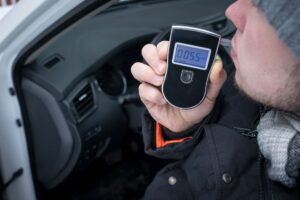Under the Fourth Amendment to the U.S. Constitution and under state established arrangements, one has the right to be secured in their persons, papers and effects. When police or law enforcement has administered a compulsory blood test, especially without a warrant, then there may be Fourth Amendment issues present such as those involving searches and seizures.
If you or a family member have been recently arrested or charged with driving while intoxicated and were compelled to give a blood test without your consent, contact a drunk driving defense attorney to talk about your case.
This foundation all ends up noticeably significant to the Court’s decision when we swing to the alcoholic driving capture situation. Normally, such a capture happens when police watch an example of driving that proposes inebriation, including weaving or other, showed ineptitude in the driver’s seat. In light of their perceptions of such driving, which add up to “sensible doubt” of DWI, police may pull over or briefly “stop” the alcoholic driving suspect for advance examination.
At this stage, police may ask the speculate questions, investigate the presumes eyes (for indications of inebriation), sniff at the air close to the suspect (for the stink of liquor), and maybe request that the presume walk a straight line or generally show the kind of coordination that most calm individuals display. The officer may likewise request that the speculate take a breathalyzer test. In the event that the speculates conduct, appearance, aroma, as well as breathalyzer, comes about (or the refusal to take a breathalyzer test) offer ascent to reasonable justification to trust that the driver is inebriated, at that point the officer may capture him for DWI.
By comparison, the lion’s share approach offers officers for all intents and purposes no direction by any stretch of the imagination, yet states just that “[i]n those alcoholic driving examinations where cops can sensibly get a warrant before a blood test can be drawn without essentially undermining the viability of the inquiry, the Fourth Amendment orders that they do as such” (accentuation included). Such a dubious mandate, maybe amusingly, may altogether undermine the adequacy of the greater part’s sentiment.





